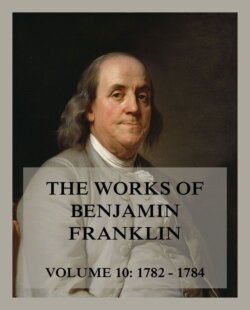Читать книгу The Works of Benjamin Franklin, Volume 10 - Бенджамин Франклин - Страница 16
На сайте Литреса книга снята с продажи.
MCXXVII. FROM BENJAMIN VAUGHAN
ОглавлениеPassy, 27 November, 1782.
My Dearest Sir:—
I am so agitated with the present crisis that I cannot help writing to you, to beseech you again and again to meditate upon some mild expedient about the refugees, or to give a favorable ear and helping hand to such as may turn up.
Both sides agree that the matter of expense is nothing, and the matter of honor in my opinion is least to that side which has most sense and most justice on its side. It seems to me that the matter of present peace and that of future happiness are the only points of true concern to either.
If I can judge of favorable moments, the present is of all others most favorable to our views of reconciliation. We have liberal American commissioners at Paris, a liberal English commissioner, and a liberal first minister for England. All these circumstances may vanish to-morrow, if this treaty blows over.
If you wanted to break off your treaty, I am perfectly sensible that you could not do it on grounds in which America would more join with you than this of the refugees. On the other hand, if England wanted to break, she could not wish for better ground on her side. You do not break; and therefore I conclude you both sincere. But in this way I see the treaty is likely of itself to break. I pray then, my dearest, dearest sir, that you would a little take this matter to heart.
If the refugees are not silenced, you must be sensible what constant prompters to evil measures you leave us; what perpetual sources of bad information. If the minister is able, on the other hand, to hold up his head on this one point, you must see how much easier it will be for you both to carry on the great work of reunion, as far as relates to prince and people. We are not well informed about the deeds of the refugees in England; and we can only now be well informed by publications that would do irreparable mischief.
Besides you are the most magnanimous nation, and can excuse things to your people which we can less excuse to ours. Not to mention that when Congress sent you their last resolutions they were not aware that you would be so near a settlement as you are at present. To judge which is the hardest task, yours or England’s, put yourself in Lord Shelburne’s place. The only marks of confidence shown him at Paris are such as he dares not name; and the only marks promised him are future national ones. England has given much ground of confidence to America. In my opinion England will do her business in the way of reconciliation, very much in proportion as you do your business generously at the present peace. England is to be won, as well as America is to be won; and I beg you would think with yourself and your colleagues about the means. Excuse this freedom, my dearest sir; it is the result of a very warm heart, that thinks a little property nothing to much happiness. I do not, however, ask you to do a dishonorable thing, but simply to save England, and to give our English ministry the means of saying, on the 5th of December, we have done more than the last ministry have done. I hope you will not think this zeal persecution; for I shall not mention this subject to you again of my own accord.
I know you have justice on your side; I know you may talk of precedents; but there is such a thing as forgiveness, as generosity, and as a manly policy, that can share a small loss, rather than miss a greater good. I am, etc.,
B. Vaughan.
